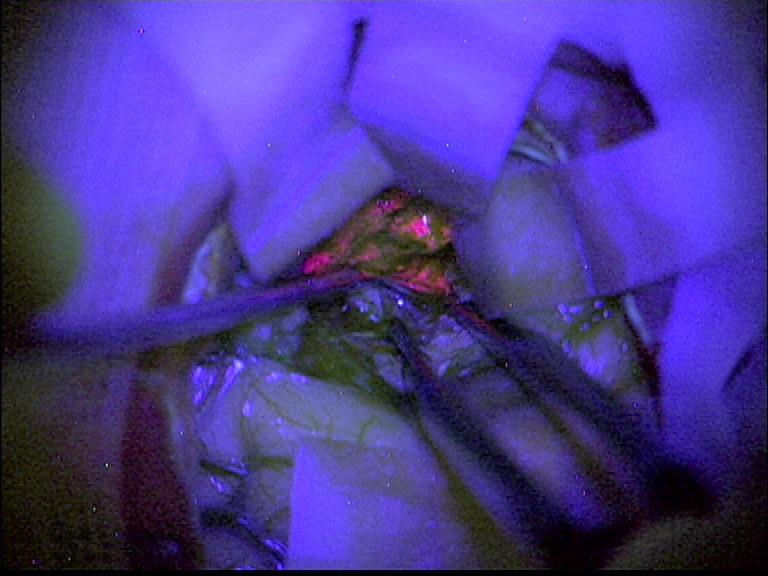‘Pink drink’ which helps surgeons identify brain tumours rolled out across NHS
‘Groundbreaking’ treatment could prolong patients’ lives, research suggests

A drink that enables surgeons to precisely target brain tumours by making cancer cells glow pink has been rolled out across the NHS.
The liquid, known as 5-ALA, uses fluorescent dye and ultraviolet light to make cancerous cells glow under UV light.
This enables doctors to more precisely target brain tumour tissue during surgery to remove it, as well as helping to spare healthy brain cells.
Research suggests the whole tumour can be successfully removed in 70.5 per cent of cases where 5-ALA is used, up from around 30 per cent without it.
The treatment had previously been available in some NHS hospitals but will now be offered in every neurological centre in England, health secretary Matt Hancock said.
It is hoped it will it benefit 2,000 patients a year.
The announcement comes a year after the death of Baroness Tessa Jowell from brain cancer.
The Labour MP was diagnosed with a glioblastoma, the most common cancerous brain tumour in adults, in May 2017, and went on to campaign for better funding and treatments for the disease.
Mr Hancock said: “Tessa Jowell fought passionately and courageously for more recognition of rare brain cancers before she tragically passed away last year.
“One year on, the effects of her tireless campaigning can already been seen.
“I am proud to announce we have now rolled out this groundbreaking treatment aid across the country, transforming care for 2,000 patients every year – a fitting testament to Tessa’s memory.
“A cancer diagnosis is life-changing, but I want every single patient to feel reassured that they have access to the best and fastest care in our wonderful NHS.”

Emma Greenwood, Cancer Research UK‘s director of policy and public affairs, said: “Brain tumours remain a huge challenge, with survival barely improving over the last 30 years, and making 5-ALA available across the NHS is one of Dame Tessa Jowell’s many legacies.”
Researchers have said 5-ALA could also allow surgeons to consider the next steps in a patient’s treatment during an operation, with without having to wait for pathology results to confirm whether tumours are high or low grade. This could prolong survival times for patients.
Join our commenting forum
Join thought-provoking conversations, follow other Independent readers and see their replies
Comments
Bookmark popover
Removed from bookmarks